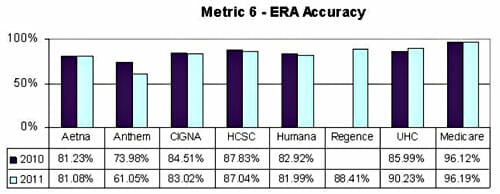I have written before that peer review is not a guarantee of correctness. Most academics would laugh at that portrayal, yet that is exactly how climate peer review is treated in the media.
A number of years ago, Charles Monnett, flying over the Arctic to do some sort of whale study, saw 3-4 polar bears floating dead in the water. Without either a) retrieving the bear carcasses or b) even getting a picture of them, he wrote up a paper that discussed the siting and hypothesized the bears drowned in a storm and further that more bears would likely drown in the future if global warming melts more Arctic ice in the summer. The findings were the basis for a lot of worry about polar bears, and played a key role in Al Gore's movie. Panic over the dead bears and Monnett's wild hypotheses about them helped fuel calls for declaring the bears endangered, despite all evidence that their populations have actually been increasing over the last few years. Monnett did quite well from the work, parlaying his fame into management of a $50 million study budget, the dream of all academics.
Monnett's study has come back into the news because there has been some kind of investigation of him and his work by the Feds. There has been a lot of speculation among skeptics that the investigation focuses on academic fraud, but I thought that a stretch. As I wrote here
- If you read between the lines in the news articles, we really have no idea what is going on. The guy could have falsified his travel expense reports
- The likelihood that an Obama Administration agency would be trying to root out academic fraud at all, or that if they did so they would start here, seems absurd to me.
- There is no room for fraud because the study was, on its face, facile and useless. The authors basically extrapolated from a single data point. As I tell folks all the time, if you have only one data point, you can draw virtually any trend line you want through it. They had no evidence of what caused the bear deaths or if they were in any way typical or part of a trend — it was all pure speculation and crazy extrapolation. How could there be fraud when there was not any data here in the first place? The fraud was in the media, Al Gore, and ultimately the EPA treating this with any sort of gravitas.
Seriously, you see four floating bear bodies from 1500 feet, once. You don't have any facts about how they died. You only have one data point in time. Where is there room for fraud? It's one freaking useless data point. Here is just a taste of what a joke this study was:
The actual survey Monnett was conducting when he observed the dead bears in 2004 was the migration of bowhead whales. Investigators questioned how he later obtained data for a table listing live and dead polar bear sightings from 1987 to 2004.
“So how could you make the statement that no dead polar bears were observed” during that time period? May asked.
“Because we talked to the people that had flown the flights, and they would remember whether they had seen any dead polar bears,” Monnett said.
They only mystery is how this unbelievably trivial piece of work was published.
Well, now we have a better idea. The reviewers for the article were Lisa Rotterman and Andrew Derocher. Incredibly, it turns out Ms. Rotterman is his wife - yes, some people are more peers than others - and Derocher was awarded a large research contract by Monnett just before he reviewed the article. Wow.
By the way, I think I will be both right and wrong. I was pretty sure any government investigation would be about misuse of funds, and that does seem to be the main thrust here, though I was wrong in that it does seem to touch on academic fraud as well, in particular the idea of giving out grant money as a quid pro quo for a positive review (a practice that skeptics have long sustpected in the climate community).
By the way, both Monnett and his partner Gleason now are claiming that everyone blew their study out of proportion and it wasn't really about global warming. If this is true, they were sure silent about this when they were basking in all kinds of attention and press and grant money. Either of them could have stepped forward and stopped the momentum that built from this article and they did not.
By the way, for those who still want to believe that the EPA is drive by science,
Gleason concedes that the study had a major impact on the controversial listing of the bear as an endangered species because of global warming.
“As a side note, talking about my former supervisor, he actually sent me an e-mail at one point saying, ‘You’re the reason polar bears got listed,’” Gleason said.
One sighting in history of four floating dead polar bears and suddenly our whole fossil fuel economy has to be shut down.
